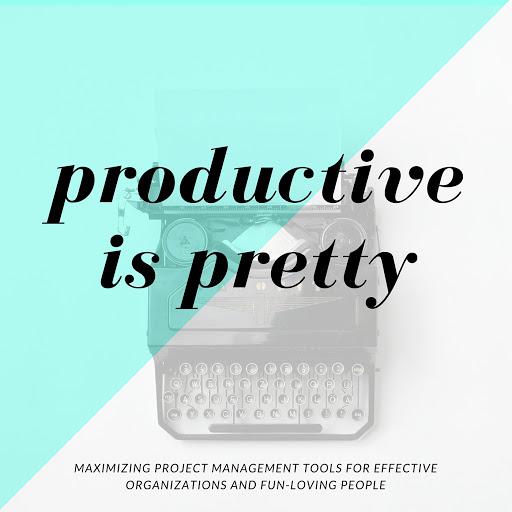What session do you propose for The Collective 2020 Gathering?
Be sure to read the full theme, CFP, and instructions at: www.thelibrarycollective.org/program
Your entry MUST contain the following 5 elements, numbered as follows:
1- Short Session Description. (~100 words)
2- Session Style/Format (e.g. lightning talks, make/hack/play session, etc.)
3- Takeaways: Describe any takeaways, skills, outcomes, and/or interactive elements!
4- Organization. Fully formed (i.e. you have people in mind or chosen to co-organize) or will you initiate a CFP for co-organizers/presenters?
5- Contact Information - Name of primary contact + email!!!

 EXAMPLE SESSION IDEA: Productive is Pretty
EXAMPLE SESSION IDEA: Productive is Pretty

1 - Short Session Description: When complex systems work well, it’s not only useful--it’s beautiful! Academic libraries use dozens of intricate workflows in every facet of the organization. This session will focus on using free project management tools to create and implement new or existing workflows for collaborative teams (yay, transparency!) and individuals (take that, to-do list!). There will be an idea library of real-world examples that library teams are already practicing, and seasoned veterans on hand for coaching. Beginning users with problems to solve and advanced users looking for creative uses and automation techniques are all welcome!
Note: Session will focus on one or two tools only, likely Trello (and IFTTT/Zapier) and Habitica.
2- Session Style/Format: Make-Hack-Play or Skill Building Workshop
3- Takeaways: Participants will leave with: -Trello or Habitica accounts -A productive solution for at least one collaborative work or personal goal (e.g. a Trello board or Habitica Challenge) -Access to an example showcase for adapting existing systems and gaining inspiration
4 - Organization: CFP for example showcase (i.e. People who have examples of how they are using Trello or Habitica in libraries)
5 - Contact Information: Jess Williams (williamsjessi@umkc.edu) or Dani Wellemeyer (wellemeyerdm@umkc.edu )

 What's Your Character Class?: Using Personality To Be Your Best Librarian Self
What's Your Character Class?: Using Personality To Be Your Best Librarian Self
Short Session Description: It's easy to place all librarians in the same character class, but we all come to work with certain skills and abilities. It's time to break out of the typical and embrace the class that honors your specific strengths. But, do you know what character class best fits you? Do you like personality quizzes? Then this session is for you! Take a quiz, learn your best character class and what strengths you bring to the table, and learn how to become your best librarian self.
Session Style/Format: Hands-on workshop with character building sheets and time for small group discussion.
Takeaways: During the session, participants will take a short personality quiz. Upon receiving their results, we'll learn about the different character classes and how knowing your class can make you a better librarian. We will also discuss how to appreciate other character classes and form the best teams for tackling projects. Participants will have access to the quiz after the session to share within their libraries and they'll also have character sheets to keep track of their strengths.
Organization: Currently, I'm on my own, however, I've noticed some similar themes and am open to pairing up with interested parties or striking out on my own.
Contact Information:
Elin Woods, Reference Librarian, Indiana University of Pennsylvaia, ewoods@iup.edu

 Framing Your Opus: Zine-Making as a Tool for Information Literacy Instruction
Framing Your Opus: Zine-Making as a Tool for Information Literacy Instruction
1- Short Session Description: Zines are short-run, independently published magazines on a variety of subjects. Traditionally, they have been created by those aligned with DIY culture and/or underrepresented groups. This session will explore how zines can be used to teach information literacy concepts. Attendees will participate in a workshop wherein zines are defined, examples of zines are shared, and everyone begins work on their own zine with provided materials. While introducing and sharing examples of zines, the presenters will start a dialogue about institutional and publishing biases, evaluating information, and concepts of authority (constructed and contextual). This workshop has been run with incoming freshman at a university, but can be scaled for a wide range of audiences. While making zines, the group will be encouraged to brainstorm other ways zines can be used as an instructional tool.
2- Session Style/Format: Workshop and discussion.
3- Takeaways: Participants will have a lesson plan, a zine they created, and several ideas on how they can use zines for instruction in their library.
4- Organization: The organization of this proposal is fully formed - both presenters are from Gleeson Library, University of San Francisco.
5- Contact Information:
Matthew Collins
Reference, Instruction, and Zine Librarian
collinsm@usfca.edu
Anders Lyon
UX/Web Design Librarian
alyon2@usfca.edu

 Conjuring the E-textiles Workshop: How to Get What We Want
Conjuring the E-textiles Workshop: How to Get What We Want
Short Session Description: In this hands-on workshop, we share our experiments with soft circuitry and electronic textiles (e-textiles) and talk about strategies for designing an e-textiles workshop in a library makerspace. Participants can interact with our projects, create their own, and learn about the material conditions that made this work possible. While we sew, we’ll collectively brainstorm: what can we do in our workplaces to make it easier to teach each other what we don’t know and to forage for what we don’t have?
Session Format & Style: Hands-on workshop
Takeaways: Participants will leave with their own project and documentation for replicating our e-textiles workshop.
Organization: Fully formed.
Contact Information:
Ariel Ackerly – aackerl1@uga.edu
Lydia Brambila – lybram@uga.edu

 Slaying the authority work dragon
Slaying the authority work dragon
Your catalog needs to be rescued from the ravages of split indexes, uncontrolled names, and out-dated subject headings. But you don't have a dragon's hoard on hand to pay for outsourcing. Let's get together and brainstorm ways to improve database quality using the tools you already have or can get for free! Conveners Mike Monaco (The University of Akron) and Stacey Wolf (University of North Texas) will demonstrate some ways they've automated quality control and authority work in-house. Participants will practice with these tools and work toward developing procedures and plans for their own libraries.
Session format & style: Hands-on workshop
Takeaways: Participants will learn some ways to use MarcEdit reports, Connexion batch searching, and other tools to automate authority control tasks
Organization: Two conveners have been identified, although we are open to call for more participants
Contact information:
Mike Monaco
Coordinator, Cataloging Services
The University of Akron
Office: 330-972-2446

 Speed Mentoring: Kick Start Your Mentorship Adventure Seed
Speed Mentoring: Kick Start Your Mentorship Adventure Seed
Short Session Description:
“Find a mentor” is a common piece of professional advice, especially for early-career librarians. This can feel intimidating, especially when you are new at an institution trying to keep up with experienced librarians. Many mentorship programs are available through professional institutions that can be expensive and selective. We signed up for ACRL’s Instruction Section mentorship program and were paired together for a remote mentorship, which soon evolved into a peer mentorship relationship. After reflecting on our experience, we wanted to create a session that will facilitate conversation between those who have participated in mentorships and those who are interested in starting a mentorship.
Session Format & Style
We took our inspiration for the format of our session from speed dating. We will set up tables for our “mentors” (people who have been in a mentorship before) and “mentees” will rotate tables. Each table will have a set of questions that will help facilitate conversation. In the spirit of speed dating, everyone will get cards so that they can share their information with those they want to continue a dialogue.
Takeaways:
We want our audience to get a sense of our experience and process, as well as begin possible mentorship relationships in a welcoming environment. It is our hope that this session will be a good experience for those who have wanted a mentor, but do not have the resources to find someone who is compatible. Additionally, when you are not part of ALA, ACRL, or another big organization, we want you (our audience) to be able to:
- Discuss mentorship barriers, successes, and advice
- Begin dialogues about interests and goals
- Leave with new relationships that may lead to mentorship
Organization
The presenters will be the facilitators of the workshop, sharing our experience in the beginning and then making sure the workshop goes smoothly. We are putting out a Call for Participation for individuals who have experienced a mentorship and would like to share their experience (good, bad and in-between) with those who are interested in mentorship.
Contact Information
Jaena Manson
Instruction & Outreach Librarian
University of Houston-Victoria
361-570-4176
Quetzalli Barrientos
Arts & Humanities Research and Instruction Librarian
Tufts University
617-627-2073
Quetzalli.Barrientos@tufts.edu

 What is my (Teaching) Identity? Taking Action to Embrace your Teaching Avatar as Part of Your True Professional Self
What is my (Teaching) Identity? Taking Action to Embrace your Teaching Avatar as Part of Your True Professional Self
Title: What is my (Teaching) Identity? Taking Action to Embrace your Teaching Avatar as Part of Your True Professional Self
Short description:
When thinking about your teaching identify, is it part of who you are or is it some other version of yourself? When you talk about your teaching what stories do you construct? Do you contemplate how your interactions with learners lead to success or less than successful learning experiences? To excel at teaching, one must have a true sense of one’s teaching identity. This can be achieved through reflection.
Session Style/Format: Interactive Workshop
Takeaways
During this interactive workshop of hands-on activities, attendees will learn how to contemplate current teaching practices, discuss the connection between current practice and professional identify, and determine future steps to enhance one’s teaching.
Organization: Fully Formed but open to partnering with others
Contact Information
Jennifer Sharkey, Head of Information Use and Fluency, jsharke@ilstu.edu

 Privacy Quest: Write Your Own Story
Privacy Quest: Write Your Own Story
Short Session Description
Privacy is a vital civil right. Learn to protect your and your community's privacy via narrative-based exercises.
Privacy is personal. Group activities will be interspersed with stories of my own quest to become a professional technologist and privacy advocate.
The personal is political. Protecting privacy is a key element of the library's role in democracy. Empower your community to wrest its narrative back from the clutches of surveillance capitalism. Control your privacy; write your own story.
Session Style/Format
Interactive workshop
Storytelling
Takeaways
Inspiration
Threat modeling to protect privacy
Narrative techniques to create and remember cryptographically strong passphrases
An understanding of the relationship between software freedom, privacy, and civil rights
Dice!
Organization
Fully formed
Contact Information
Bryan Neil Jones
bryan.n.jones@nashville.gov

 Indefinite Madness & The Three Classes of Machiavellian Intellect
Indefinite Madness & The Three Classes of Machiavellian Intellect
1. Short Session Description: A collaborative and valiant effort will be made to isolate and leverage positive characteristics of Machiavellianism in the workplace as a means to address symptoms of organizational burnout and "indefinite madness" (via a D&D lens) in librarianship. Participants will experiment with channeling their inner "Machiavelli" via a series of group exercises designed to encourage awareness of unfavorable impact. Follow-up exercises will invert the pejorative impetus to convey the potential for empathetic machinations.
2. Session Style/Format: Hands-On Workshop/Roleplay
3. Takeaways: The workshop assumes participants have previously or contemporaneously experienced unhealthy work environments and will benefit from unconventional ways of exploring options for improvement. Interactions will yield ideas for accomplishing such.
4. Organization: Fully formed
5. Contact Information: Brian Rogers (brian-rogers@utc.edu)

 Leveling Up Using Digital Badges for Library Instruction
Leveling Up Using Digital Badges for Library Instruction
- Short Session Description. Students learn all the time and in a variety of learning environments. We hope that they become information literate throughout their educational career. As librarians, we need to be flexible in how we approach information literacy instruction. A recent technical innovation that has afforded for new approaches is digital badges (or microcredentials). Students can earn digital badges designed for specific competencies and they can be combined in multiple ways. At Penn State, we developed a robust digital badges program for library instruction and consult with others interested in implementing digital badges.
- Session Format & Style. This will be a hands-on workshop where the participants get a chance to earn and create a digital badge as well as explore the digital badge ecosystem.
- Takeaways. Participants will get a packet to guide them through the creation of a digital badge. They will identify local opportunities for digital badge implementation. They will be prepared to respond to the "wicked skeptics" of new technologies and digital badges. They will differentiate between classroom gamification and the Open Badging ecosystem. All of this will occur through hands-on learning.
- Organization. Victoria Raish from Penn State is organizing the session but if others of you also have awesome digital badge programs I am always up for collaborators.
- Contact Information.Victoria Raish, victoria@psu.edu.
Customer support service by UserEcho

